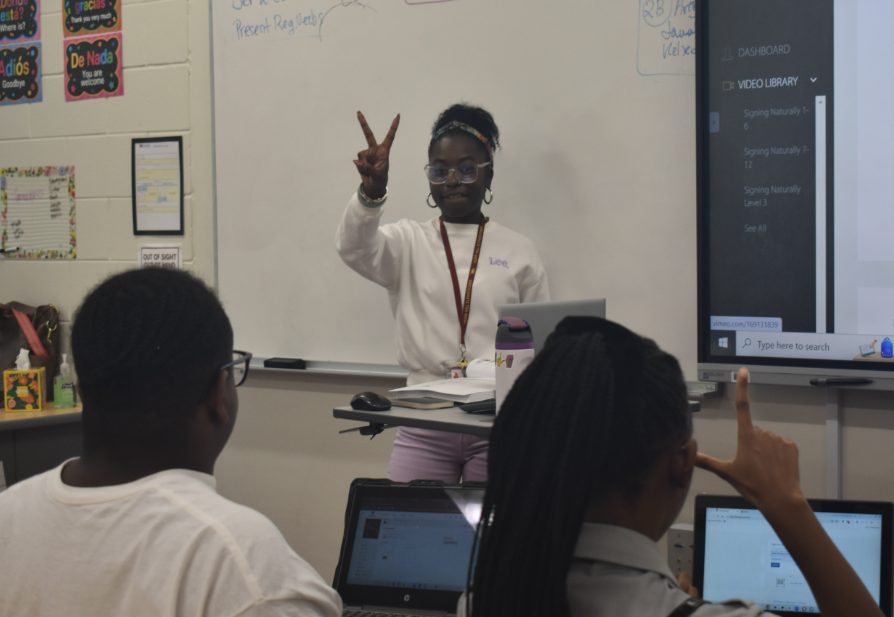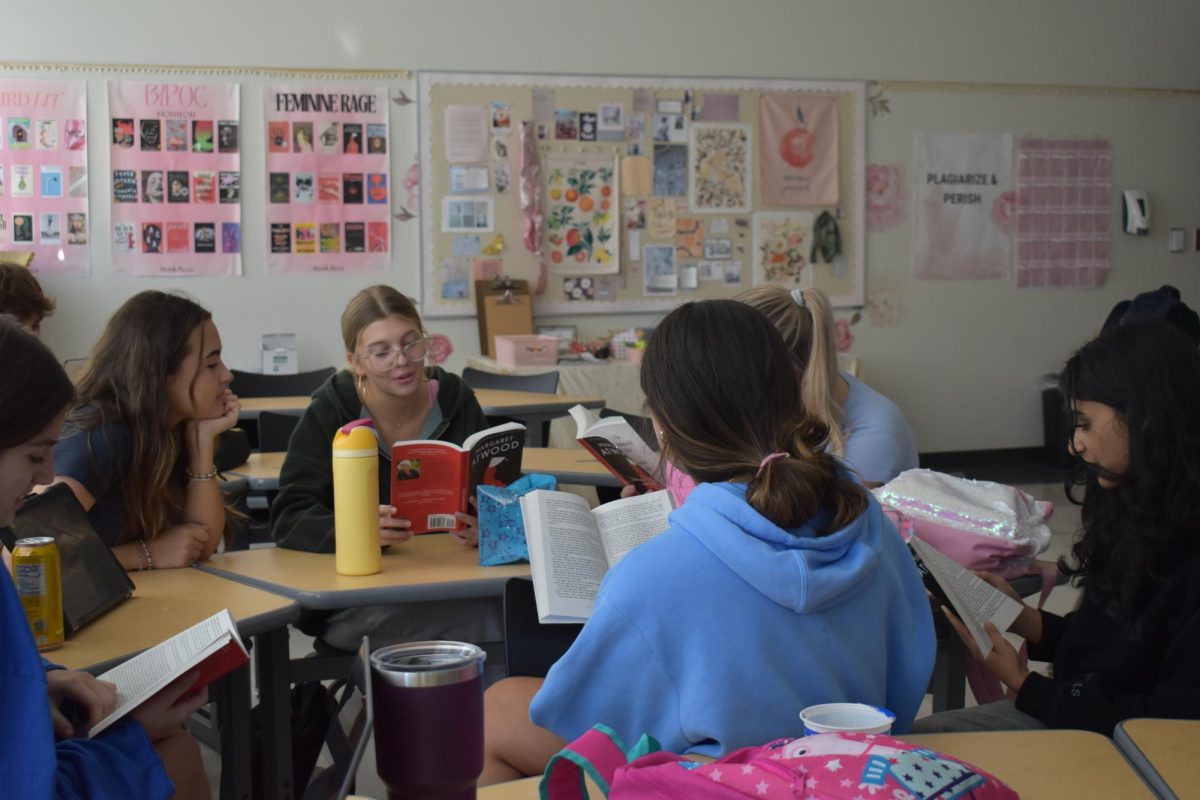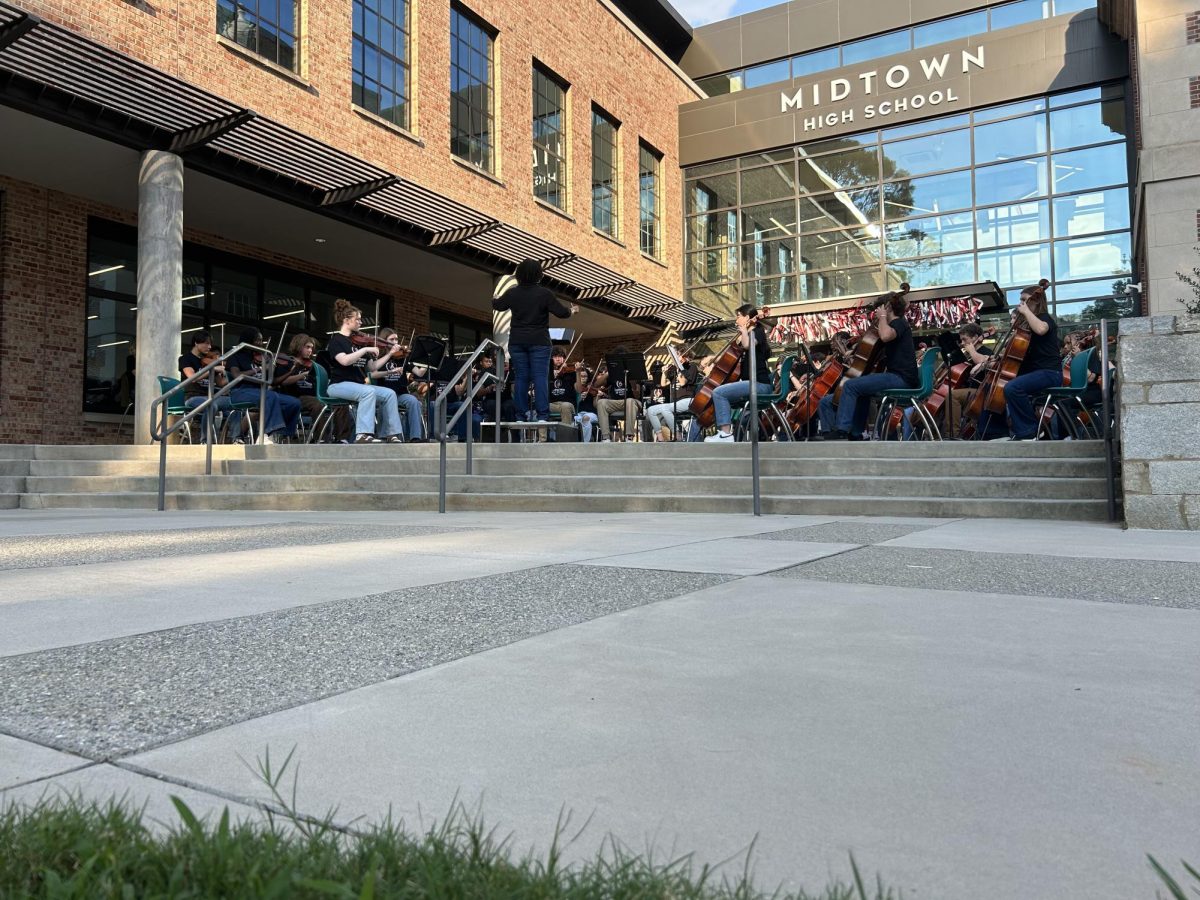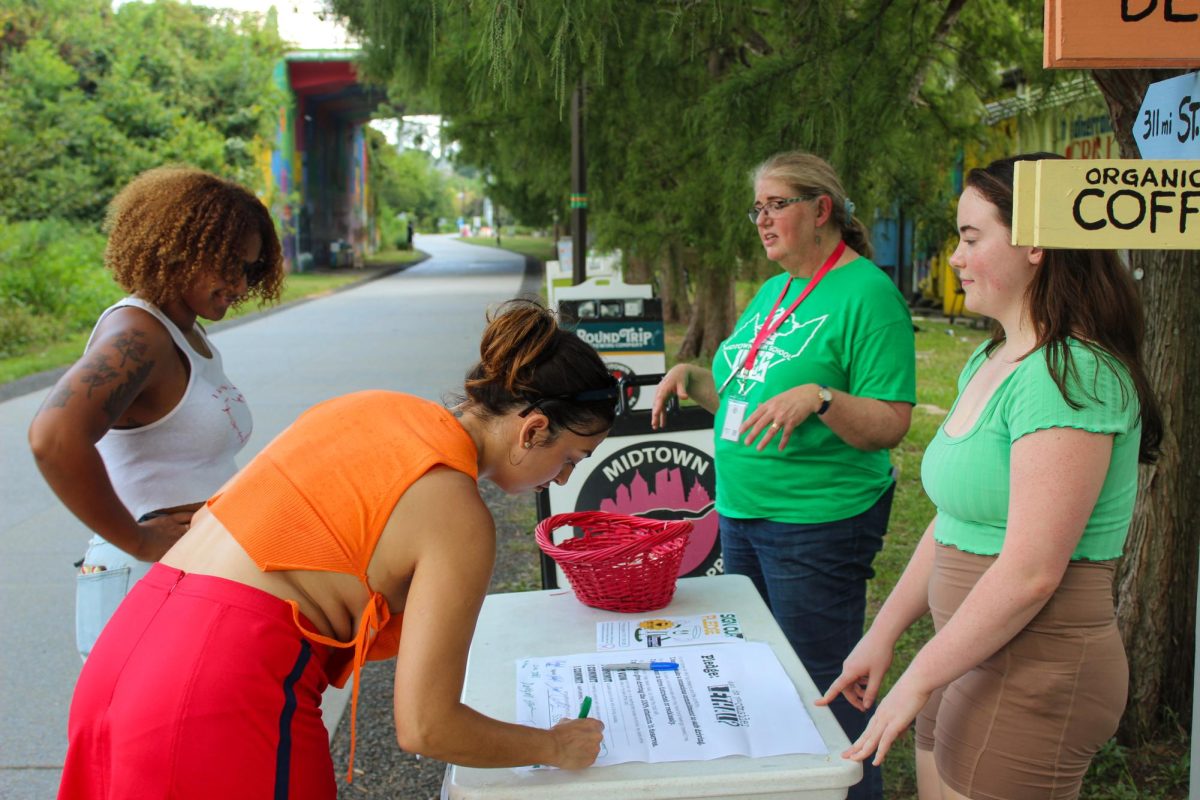The 13-year-old, 5’ 6,” 120-lb boy approached the school apprehensively. On this early September day in 1962, Guy Arledge said goodbye to his small elementary upbringing and entered Henry W. Grady High School.
In 1960s, the school had grades 8-12, blending seniors with sub-freshmen. Arledge worried he wouldn’t adjust well to the large school since he didn’t know anyone prior to starting.

“The adjustment for me, interestingly, was by being a [member of the First Baptist Church of Atlanta] ,I was a minority; the Jewish kids made up the majority,” Arledge said.
Luckily for Arledge, teachers didn’t realize his minority status, and on Jewish holidays, he would play hooky—spending the day hanging out with his Jewish friends. He made sure to not miss his favorite part of high school, though—the Friday pep rallies.
Every Friday, beating drums, student cheers and band music came from the gym. On stage, cheerleaders executed their practiced routines; behind them the school’s heroes, the varsity football team, stood. In the center, Principal Roger Derthick shouted, “What’s the good word?” Students responded , “beat North Fulton (now Atlanta International School)” —or whoever Grady’s opponent was that week. That night, everyone poured into the stadium to support Grady’s football team.
“Back then it was a big deal—a high school football game,” Arledge said. “You just weren’t with it if you didn’t go.”
With that mantra in mind, Arledge got caught up in the thrill of athletics: the cheering crowd, the idolization, the cute girls in their cheer skirts. In ninth grade, Arledge ran cross-country to earn a varsity letter.
“In my mind, all I had to do was put one foot in front of the other and just run,” Arledge said. “What I didn’t know was we had to run for miles and miles and miles, and it almost killed me. I did get that varsity letter for running cross country. The bad news was all those girls were interested in a football varsity, not cross-country.”

Beyond their typical high school shenanigans, Arledge and his classmates grew up in the shadows of deep turmoil. While Arledge dealt with deciding which sports to play and the adjustment of being a sub-freshman, the rest of the world was dealing with the Cold War and how President John F. Kennedy carefully handled the Cuban Missile crisis.
“We as students knew and the whole world knew a war with the Soviet Union was quite possible if not a likely thing,” Arledge said. “For about a week, the world held its breath.” Life went on and Kennedy became a hero to Arledge and his peers.
Just over a year later, Kennedy was assassinated while Arledge was in Ms. Dorothy Fargason’s English class. It was nearly 1:00 p.m. when Principal Derthick came on the PA system announcing shots were fired at the president’s motorcade in Dallas,Texas. The first news accounts reported no injuries, though Derthick promised to monitor the situation. Then he went off the PA. Fifteen minutes later, the principal came back on.
Arledge said, “I’ll never forget. His voice was choked with emotion and he said, ‘It’s my sad duty to tell you that President Kennedy was killed today in Dallas, Texas by an assassin’s bullet. I’m dismissing school effective immediately. Go Home.’” Students, some crying, slowly filed into the hallway, too shocked to talk.
“To this day, it still is hard to believe it happened; one moment he was smiling and making these witty comments, the next moment, he was murdered,” Arledge said.
After several school days off, Grady’s students returned, and piece-by-piece, America moved on, as did the school.
In his last two years at Grady, Arledge remembers dealing with difficult finals and studying for the SAT and ACT, all in preparation for college. While Arledge appreciated many of his teachers, he credits the colorful Mr. John Clonts with sparking his interest in mechanical drawing. Clonts became his friend, and favorite teacher.
“One day he motioned to me, ‘I want to show you something.’ We went out to his car, and he had opened up his trunk, and he had brought a shotgun,” Arledge said. “He had gotten a new shotgun and wanted to show it to me. Can you imagine what would happen on a school campus if someone had brought a shotgun today?”
After graduating Grady, Clonts’ influence helped inspire Arledge to study industrial management at Georgia Tech.
In Arledge’s junior year at Tech, the Vietnam War became difficult to ignore. Draft deferment, which protected those in higher education from the draft was replaced with a lottery system based on birthdays.
Although Arledge planned to enlist in the military after college, he worried that getting pulled out mid-semester would ruin his studies. Luckily for his studies, Arledge’s number was drawn in the last third of the lottery, making his chances of being drafted slim. After graduating, he applied to the Air Force, but since the war was dying down, Arledge wasn’t needed. He began working in business sales instead.
“Some people are blessed in knowing what they want to do early in, but I followed the opportunities,” Arledge said. “I’ve had a great career; it’s been very diverse.”
After working in sales and advertising, Arledge became communications director for Cooperative for Assistance and Relief Everywhere (CARE), a humanitarian aid organization focused on relieving impoverished areas. CARE allowed Arledge to travel the world, providing aid to areas such as Somalia after the 1992 famine, and he has met the likes of the late Nelson Mandela, former South African president, and Whoopi Goldberg, actress and host of The View.
“If I were to get hit by a proverbial truck on the way home, I have no complaints. I have had an incredible adventure,” Arledge said. “That’s what it’s been, an adventure. It started with Grady High School.”






